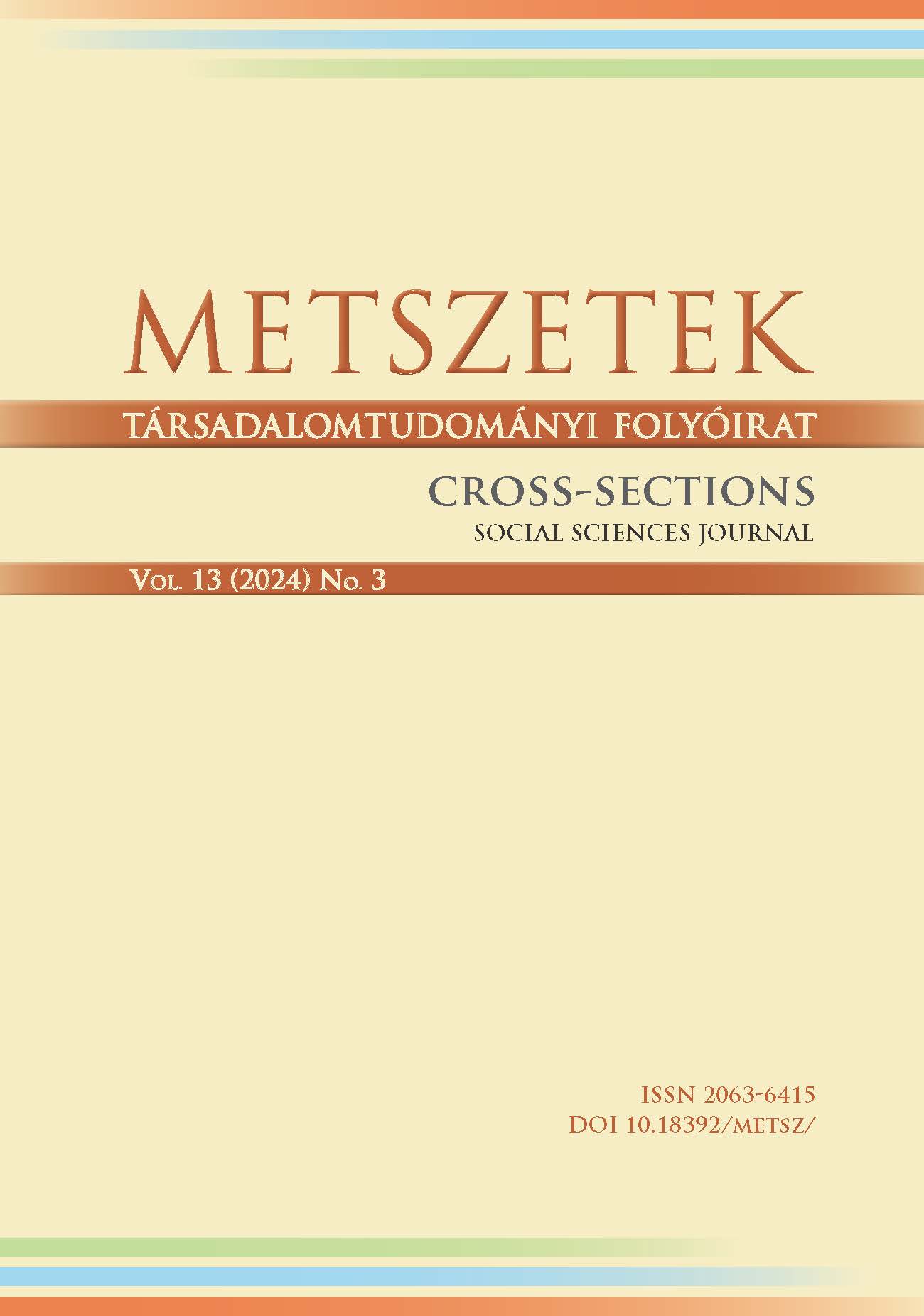Vol. 13 No. 3 (2024)
Full Issue
##issue.tableOfContents##
CLOSE-UP
-
Social Value Changes and Social Work Education: Examining the Student Base and Career Orientation of Social Work and Related Undergraduate Programs in Light of Social Value Changes
98-112Views:137The rapid pace of technological modernization, coupled with the economic and political impacts of the past 30 years, has significantly reshaped the value system of the domestic population. As a result, human-centred community values that have held significant dominance for centuries (e.g., solidarity, supportive relationships, community) are increasingly being overshadowed by the growing dominance of individualistic and materialistic values. The societal acceptance and expansion of an ideology that prioritizes material growth and personal interests influence the development of personality and the moral framework of value systems through social interactions. This shift thus affects the motivational orientation of career choices among the younger generation. This study examines the extent of change through comparative quantitative data analysis and proposes measures to address the declining interest in social work careers.
pdf (Hungarian)143
THEMATIC STUDIES – Political representation
-
Election and Representation
8-38Views:203Whether we approach representation in a wider sense (philosophical) or in a narrower sense (political), the concept is – either way – polysemic, because its meaning is determined in many respects by many factors. Representation therefore should be delt with as a contested concept. Political representation – it turns out – is a modern concept, in which the particular but very complex relationship between the representative and represented has been brought in close relationship with such basic concepts as freedom, democracy, free elections and justice, whereas political representation had litte or nothing to do with these core values earlier. In spite of the pluralist interpretation of the concept, we can distinguish statistical and substantive political representation, the first referring to voters’ political preferences expressed in Parliamentary seats, while the substantive representation refers to the content of the governmental decisions in public affairs, with respect to social expectations. The purpose of this paper is to examine political representation through morphological method, for a better understanding of its inner structure and of the interdependency of its core elements.
pdf (Hungarian)124 -
Presence and plebiscitary representation: Representative performances of Viktor Orbán and Péter Magyar in the 2024 election campaign
39-67Views:302The study examines the interactions of meaning effects and presence effects in the mass events of Viktor Orbán and Péter Magyar in the 2024 election campaign, attempting to show that the performances of both leaders can be interpreted as forms of plebiscitary representation, although there are also substantial differences between them (for example, in the degree of asymmetry of the representative relationship and the palette of leader-follower interactions). The text argues that such an analysis, blending traditional aspects of representational claims analysis with ethnographic method, can help to shed light on a blind spot in contemporary performative approaches to representation: the corporeal-material aspects of performativity. Plebiscitary representation, in which a unified mass acclaiming a leader plays a key role, is a particularly suitable context for demonstrating the importance of presence-effects in the constitutive process of representation.
pdf (Hungarian)355 -
Synecdochal Representation and Transgressive Style: The Performative Turn of Populism Studies in the Case of Boris Johnson and Jeremy Corbyn
68-97Views:108The past decade has seen a proliferation of work on populism, a field generally dominated by the ideational approach of Cas Mudde, offering a conceptualization of populism as a substantive position, worldview, or set of ideas underpinning public policies. In contrast, this paper proposes an alternative framewrok and draws on performative theories to shed new light on understanding populist leadership. The performative school transcends the boundaries of political discourse to place its focus on the sociocultural and stylistic-aesthetic aspects of populism. Within this conceptual framework, the paper analyses the performances of Boris Johnson and Jeremy Corbyn, respectively. Suited to empirically informed theorizing, the cases offer avenues to further develop the performative approach and to expose the limited explanatory power of the ideational paradigm. The paper’s contribution to the literature is twofold. It offers an explanation of the co-exsistence and hybridization of elitist and populist elements in the case of Boris Johnson, and highlights the need for distinguishing between populist and popular forms of representation in the case of Jeremy Corbyn, thus promoting conceptual refinement.
pdf (Hungarian)127
REVIEW
-
Defining Disaster
113-119Views:113Marie Aronsson-Storrier – Rasmus Dahlberg (eds.) (2022): Defining Disaster. Edward Elgar, Cheltenham, 264 oldal
pdf (Hungarian)130






